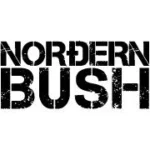What is bushcraft?
Simply put bushcraft is about living in nature with simple means, with all the knowledge and skills you need to be able to do so for at least a few days. This includes for example the following:
- Dressing right and the 3-layer principle
- Navigation with map & compass
- Navigation by signs in nature
- Moving with ease in nature
- Identification and behaviour of wildlife, and especially the possibly dangerous ones
- How to choose a camp location
- Different types of camp and shelter construction
- Knots
- Making fire with simple means
- Collecting dfferent tinder & firewood and their characteristics and uses
- Cooking with simple means
- Food and medical sources in nature
- Preparation of food and water found in nature
- How different types of food affect your body
- Handling knife, saw and axe
- Wood carving
- Maintenance of knife, saw and axe
- Laws and local customs concerning living in nature
- First Aid
- Medical knowledge for life in nature and for emergencies
- Field Hygiene
These are the most important areas of knowledge and skill you should strive to learn and improve on, and it is a lifetime of study with endless possibilities. With time you will find that you need fairly little beyond a good knife and a warm sleeping bag. Take your time, be safe and have fun!



